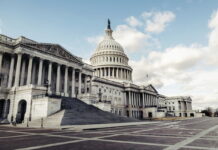Sports markets accounted for around 50% of all markets on Kalshi last week. That included Nathan’s Hot Dog Eating Contest seeing a lot of activity.
A few weeks ago, during the NBA and NHL playoffs, sports accounted for over 80% of trading volume at the prediction markets site. But, with US sports in a quiet period, alternative markets such as the annual eating contest attracted attention.
Event Horizon tracks the world of prediction markets and notes that Kalshi saw a decline in sports trading recently.
MLB contests were still the most popular markets on the site. UFC fights, Club World Cup soccer matches, and WNBA games were also among the platform’s most traded events.
Nathan’s Hot Dog Eating Contest accounted for 4% of overall volume. The winner of the Democratic primary for mayor in New York City was the most traded non-sports market.
Sports Dominate Prediction Markets Despite Opposition
The top 20 markets for Kalshi last week accounted for less volume than the NBA alone did the previous week. This highlights that the site has become increasingly reliant on sports markets since expanding into the territory in January this year.
The expansion has been met with strong opposition from states that accuse the platform of offering unlicensed sports betting.
Seven states issued Kalshi cease-and-desist letters. However, rather than take a step back from sports markets, Kalshi responded by filing counter lawsuits in Nevada, New Jersey, and Maryland.
So far, judges have ruled in Kalshi’s favor. In Nevada and New Jersey, judges granted preliminary injunctions that allow the company to continue operations in the states for the time being.
In the case in New Jersey, 34 states, as well as over 60 tribal groups, and the American Gaming Association (AGA) submitted briefs to the court opposing sports prediction markets.
The briefs accuse Kalshi of hypocrisy. The company claimed in court that it does not offer betting, but rather gives users opportunities to trade on events with “real-world financial consequences”. However, it was highlighted that Kalshi has frequently run ads that state the platform is offering “legal sports betting in all 50 states”.
States, therefore, argue that it should be regulated in the same way as sports betting. That means applying for a license, paying taxes on revenue, and being restricted in states that have not yet legalized gambling on sports.
Courts are mulling over how to balance state betting rules with the Commodity Exchange Act (CEA), which regulates event contracts, While that happens, Kalshi has ramped up its sports markets.
Whereas the first sports-related markets focused on long-term futures, users can now trade contracts on single-match winner markets in the NBA, NHL, MLB, NFL, soccer, and tennis. An upturn in trading volume is expected for the coming weeks on Wimbledon matches.
Sports Leagues Warn Of Prediction Markets Expansion
Sports leagues have also voiced concern about Kalshi’s expansion. The NBA sent a letter in May to the Commodity Futures Trading Commission (CFTC), warning of the risks that sports prediction markets pose.
“Without oversight and regulation tailored to the specific circumstances of sports wagering, the integrity risk posed by sports prediction markets are more significant and more difficult to manage than those presented by legal, regulated sports gambling,” wrote Alexandra Roth, the NBA’s vice president.
The NFL and MLB also sent letters to the CFTC expressing their concern.
Jonathan D. Nabavi, NFL VP of Public Policy and Government Affairs, wrote in the NFL’s letter, “These contracts would mimic sports betting but seemingly without the robust regulatory features that accompany regulated and legalized sports betting and which help to mitigate threats to the integrity of our contests.”
CFTC Shifts Stance Under New Administration
The CFTC, however, has been reluctant to place any restrictions upon Kalshi and the expansion of sports prediction markets. Under the previous administration, the organization ordered Kalshi to remove its market on the US presidential election.
Kalshi, as it has done with state regulators, filed a counter lawsuit against the CFTC. It won its legal battle. A federal judge ruled that the market did not harm the public as the CFTC had stated. This made it legal under the CEA.
Kalshi quickly reinstated the market. Since Donald Trump has taken over the US Presidency from Joe Biden, the CFTC has shifted its stance. Donald Trump Jr. took up a role as a strategic advisor at Kalshi. Kalshi board member Brian Quintenz was nominated by the president to lead the CFTC.
Quintenz stated he will resign from his position at Kalshi upon taking up the role as CFTC chair. His ties to the company mean he is unlikely to introduce measures against the expansion of political and sports markets.
The ability of Kalshi to continue expanding saw the company valued at $2 billion in a recent round of funding. Rival prediction market site Polymarket was valued at half that, around $1 billion in its recent round of funding.
Polymarket Also Expanding Its Sports Trading Options
Polymarket is unlicensed in the US and was fined $1.4 million by the CFTC for accepting US users. The platform has, however, made a partnership with Elon Musk and the social media platform X. That partnership could lead to further expansion.
Kalshi had initially announced that it had made a deal with Musk and xAI. However, Kalshi was forced to retract the announcement after X denied the partnership had been agreed.
Similarly to Kalshi, sports markets account for a growing percentage of Polymarket’s business.











